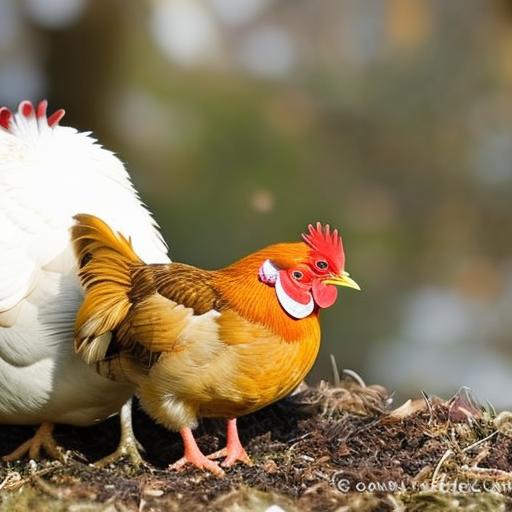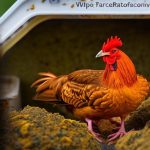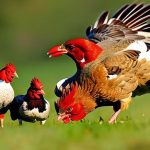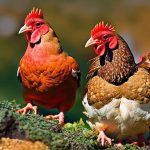Keeping chickens healthy and happy during the winter months is essential for their overall well-being. As the temperatures drop and the days become shorter, it is important to provide proper care and maintenance for your chicken coop. This article will discuss the basics of chicken coop maintenance in winter, including ventilation, lighting and heat sources, insulation, feeding, water supply, hygiene, and monitoring your chickens’ health. By following these tips and guidelines, you can ensure that your chickens stay warm, healthy, and happy throughout the colder months.
Key Takeaways
- Proper ventilation is crucial for maintaining a healthy chicken coop in winter.
- Adequate lighting and heat sources are necessary to keep chickens warm and comfortable.
- Insulation can help keep the coop warm and reduce heating costs.
- A balanced diet and access to clean water are essential for chickens’ health in winter.
- Regular hygiene and health monitoring are important for keeping chickens happy and healthy all winter long.
Understanding the Basics of Chicken Coop Maintenance in Winter
Winter coop maintenance differs from summer maintenance due to the challenges posed by freezing temperatures and snow. In the winter, it is crucial to protect your chickens from the cold and provide them with a comfortable environment. This includes ensuring proper ventilation, providing adequate lighting and heat sources, using insulation to keep the coop warm, feeding them a balanced diet, keeping their water supply from freezing, maintaining hygiene and cleanliness in the coop, and monitoring their health and well-being.
Ensuring Proper Ventilation in the Chicken Coop
Proper ventilation is important in the winter to prevent moisture buildup and ammonia levels from rising in the coop. However, it is essential to strike a balance between ventilation and keeping out cold drafts. One way to achieve this is by installing adjustable vents that can be opened during the day to allow fresh air in and closed at night to retain heat. Additionally, placing vents higher up on the walls or roof of the coop can help prevent cold air from directly hitting the chickens.
Providing Adequate Lighting and Heat Sources
Lighting plays a crucial role in maintaining a healthy flock during the winter months when daylight hours are shorter. Chickens require a certain amount of light each day to maintain their egg production and overall health. Supplemental lighting can be provided using artificial lights to ensure they receive at least 14-16 hours of light per day. In terms of heat sources, it is important to provide a warm and cozy environment for your chickens. This can be achieved by using heat lamps, heated perches, or even heated waterers to keep their living space comfortable.
Using Insulation to Keep the Coop Warm
Insulating the chicken coop is an effective way to keep it warm during the winter months. Insulation helps to retain heat and prevent drafts from entering the coop. Common insulation materials include straw, hay, or even recycled denim insulation. It is important to insulate the walls, ceiling, and floor of the coop to provide maximum warmth. Additionally, sealing any gaps or cracks in the coop will help prevent cold air from entering and warm air from escaping.
Feeding Your Chickens a Balanced Diet for Winter

A balanced diet is crucial for chickens during the winter months to ensure they receive the necessary nutrients to stay healthy and maintain their egg production. It is important to provide a high-quality feed that is specifically formulated for winter conditions. This feed should contain a higher percentage of protein and fat to help keep chickens warm and provide them with energy. Additionally, offering treats such as scratch grains, fruits, and vegetables can help keep them entertained and provide additional nutrients.
Keeping the Water Supply from Freezing
Keeping chickens hydrated in the winter is essential for their overall health and well-being. However, water freezing can be a common problem during colder months. To prevent this, it is important to use heated waterers or regularly check and replace frozen water with fresh, unfrozen water multiple times a day. Additionally, insulating the waterers or placing them in a heated area can help prevent freezing.
Maintaining Hygiene and Cleanliness in the Coop
Maintaining hygiene and cleanliness in the coop is crucial during the winter months when chickens spend more time indoors. Regularly cleaning the coop, removing soiled bedding, and replacing it with fresh bedding will help prevent the buildup of bacteria and ammonia. Additionally, providing dust baths for your chickens can help keep them clean and prevent mites and other pests.
Monitoring Your Chickens’ Health and Well-being
Monitoring your chickens’ health and well-being is important throughout the year, but it becomes even more crucial during the winter months. Cold temperatures can make chickens more susceptible to respiratory illnesses, frostbite, and other health issues. Regularly checking for signs of illness or distress, such as coughing, sneezing, lethargy, or changes in appetite, can help catch any problems early on. Providing a warm and stress-free environment, along with a balanced diet and proper care, will help keep your chickens healthy and happy during the colder months.
Enjoying Your Happy and Healthy Chickens All Winter Long
In conclusion, proper chicken coop maintenance in winter is essential for keeping your chickens healthy and happy. By ensuring proper ventilation, providing adequate lighting and heat sources, using insulation to keep the coop warm, feeding a balanced diet, keeping the water supply from freezing, maintaining hygiene and cleanliness in the coop, and monitoring your chickens’ health and well-being, you can enjoy a flock of happy and healthy chickens all winter long. Remember to take the necessary steps to provide a comfortable environment for your chickens during the colder months to ensure their overall well-being.
If you’re interested in learning how to keep chickens alive in winter, you may also find this article on how to insulate a chicken coop helpful. Insulating your chicken coop is crucial for maintaining a warm and comfortable environment for your feathered friends during the cold winter months. It provides them with the necessary protection against freezing temperatures and helps prevent frostbite. To learn more about insulating your chicken coop, check out this informative article on how to insulate a chicken coop.
FAQs
What temperature range is safe for chickens in winter?
Chickens can tolerate temperatures as low as 20°F, but it is recommended to keep their coop above freezing (32°F) to prevent frostbite and other health issues.
How can I keep my chicken coop warm in winter?
Insulate the coop walls and roof, use a heat lamp or ceramic heater (with caution), provide plenty of bedding, and seal any drafts or gaps.
What should I feed my chickens in winter?
Chickens need a balanced diet of protein, carbohydrates, and fats year-round. In winter, provide them with warm, cooked foods like oatmeal or scrambled eggs, and offer plenty of fresh water.
How often should I clean my chicken coop in winter?
It is important to maintain a clean and dry coop to prevent disease and parasites. Clean the coop at least once a week, and add fresh bedding as needed.
What are some signs of illness in chickens during winter?
Watch for symptoms like lethargy, loss of appetite, coughing or sneezing, and abnormal droppings. Consult a veterinarian if you suspect your chickens are sick.
Meet Walter, the feathered-friend fanatic of Florida! Nestled in the sunshine state, Walter struts through life with his feathered companions, clucking his way to happiness. With a coop that’s fancier than a five-star hotel, he’s the Don Juan of the chicken world. When he’s not teaching his hens to do the cha-cha, you’ll find him in a heated debate with his prized rooster, Sir Clucks-a-Lot. Walter’s poultry passion is no yolk; he’s the sunny-side-up guy you never knew you needed in your flock of friends!







